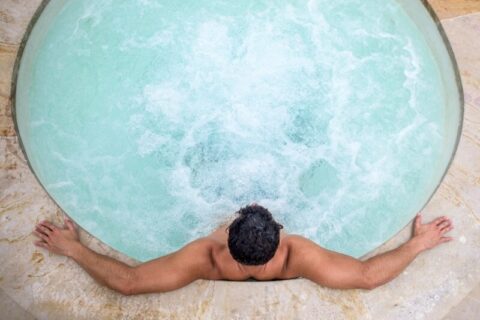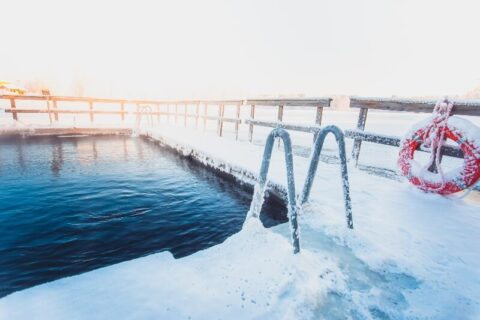Comprehensive Pool Winterization Guide
Swimming season is over, and it’s time to prepare your pool for the colder months. Do you know how to prepare your pool for winter? Winterizing your pool will help prevent damage to your pool and equipment, and it will also save you time and money when It’s time to open it back up again in the spring. Here is a handy pool winterization guide to help you through the process.
The tools, chemicals, and accessories you need for pool winterization will vary depending on your location, so determine what you’ll need and have it on hand and you won’t have to waste time looking for it on closing day. Cleaning tools, balancing and closing chemicals, and a cover are a few examples of the tools you’ll need. Then, follow these steps for protecting your pool in the winter.
- The pool needs to be as clean as possible before winter. While the pool isn’t being used, it’s important that no dirt, debris, or algae be allowed to remain in it. Cleaning it before you close it means that opening it will be much easier and more pleasant next year. Give it a good scrub with a pool brush, using an algae brush if there are any signs of algae. Then vacuum it to remove the debris and sediment you loosened during the scrubbing.
- Test and balance the water. Use a test kit or take a sample in for testing by a local pool professional. Then balance the chemicals, to protect the pool from scale build-up and corrosion while it’s closed. Be careful not to add too much chlorine, or it can destroy the other additives.
- Use winterizing chemicals to protect the pool. Your location and the type of water in your pool will be the deciding factors in which chemicals you’ll need. It’s wise to speak to a pool professional to determine which ones are necessary. You may need algaecide to prevent algae growth, or a metal sequestrant may be necessary if the water has high levels of metal. Enzymes can help make the algaecide work more effectively.
- Shock your pool before you cover it. Make sure to follow directions carefully so that the shock is done properly and can destroy any contaminants or bacteria lingering in the pool.
- Lower the water level. By doing this, you’ll prevent freeze damage and overflow. Don’t empty the pool completely, but bring it below the tile border or the bottom edge of the skimmer, whichever is lower.
- Clean your filter and pump, and blow out the lines. You don’t want debris and bacteria sitting in your filter, or water in your lines. If you live in a climate prone to freezing, add antifreeze so that any leftover water won’t freeze.
- Remove your pool accessories and store them. Handrails, ladders, and diving boards should be cleaned and stored in a dry location over the winter.
- Cover the pool. When you put a safety cover on the pool, you’ll be keeping out excess water, debris, and anything else winter weather might blow into it. A cover can also help keep your pool water warmer and less likely to freeze.
If this seems like a lot and you’d rather hire a professional to winterize your pool, Millennium Pools & Spas can help. With over 30 combined years of experience in the pool industry, we provide a comprehensive range of services for both residential and commercial customers in Virginia, Washington DC, and Maryland. When you hire Millennium Pools & Spas, you get a well-qualified, industry-trained staff, services that are tailored to your needs, and a commitment to 100% customer satisfaction. Contact us for more information.


